On September 15, 2017, the Department of Sociology and Anthropology of Ateneo de Manila University’s Loyola Schools and JJCICSI hosted a roundtable discussion on “Climate Change Policies Without Eviction”. The roundtable discussion brought together NGO practitioners to share the issues and concerns of urban informal settlers in areas affected (or would be affected) by climate change adaptation and mitigation infrastructure projects, as well as their initiatives in accompanying organized communities in their advocacy against eviction. The UN Special Rapporteur on the Right to Adequate Housing, Ms Leilani Farha, who was on a three-day academic visit in Manila, attended the event.
Among the cases presented were the following:
- The Laguna Lakeshore Expressway Dike, a flood mitigation infrastructure that would increase the capacity of the Laguna Lake to take in flood water draining from the upstream in northeast Metro Manila to prevent massive inundation of flood plains and areas that are below the 12.5-meter lake elevation. Although it is not clear whether the Duterte administration would pursue the project, land reclamation activities have been ongoing in some lakeshore barangays in Taguig City and Muntinlupa City. The NGO Community Organizers Multiversity (COM) has been doing education campaigns about housing rights and relevant laws to enable communities with threats of eviction and demolition to negotiate with government and to look for alternatives to distant relocation.
- The Tacloban Tide Embankment, a 27.3-kilometer long hard infrastructure along the shoreline of Tacloban which government expects to minimize the impact of storm surge, which killed at least 6,300 people in the city and obliterated almost all structures during the onslaught of Typhoon Yolanda in 2013. For the Urban Poor Associates (UPA), an NGO that monitors inhumane evictions and demolitions in the Philippines, this climate change adaptation measure would do more harm than good to the estimated 14,000 households residing near the city’s coastline. The NGO also claims that the city government is using this surge protection infrastructure to get rid of the informal settlers in the coastal communities.
- The Cebu City Flood Control Project to be implemented by a national government agency does not have provisions for the housing of informal settler families who will be displaced. The project would cost around ₱2 billion, but this amount is only for civil works. Local CSOs, including the Pagtambayayong Foundation, have protested, and in response, the Cebu City Development Council and the Regional Development Council approved a resolution that insisted that provisions for informal settlers must be part of the project.
- In Davao City, most of the built-up areas, two-thirds of which are informal settlements, are at the mouth of the Davao River, yet the local government once considered the building of a “mega harbor” that comprises four new islands for port area, real estate, commercial development (resorts, shopping centers), and road networks. The project was approved during the time of former mayor and now president Rodrigo Duterte but was abrogated by the current mayor, who is the daughter of the president, because the project is “antipoor.” Local CSOs, including a network of community organizations assisted by the Mindanao Land Foundation (MinLand), opposed the project because there was no consultation and the islands would restrict fisherfolks’ access to the bay, and it helped them that the present mayor is supportive of their position.
Engr Ermin Stan Pimentel, the head of the Cagayan de Oro City Housing and Urban Development Department, was also invited to share the city government’s effort in minimizing the displacement of families due to infrastructure projects through barangay-level shelter planning.
The discussion was moderated by Mr Francisco “Bimbo” Fernandez, former executive director of the Cebu-based Pagtambayayong Foundation.
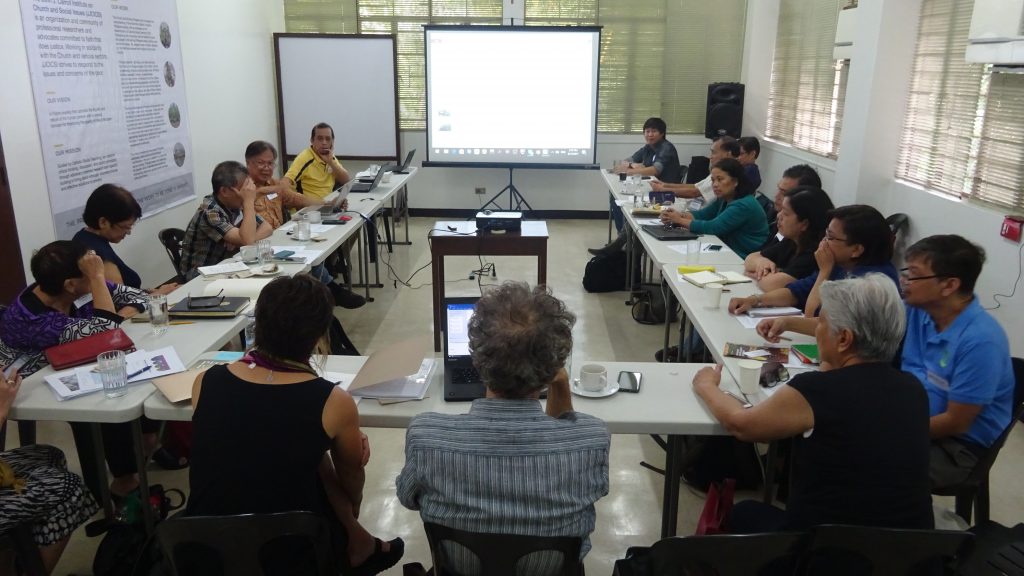
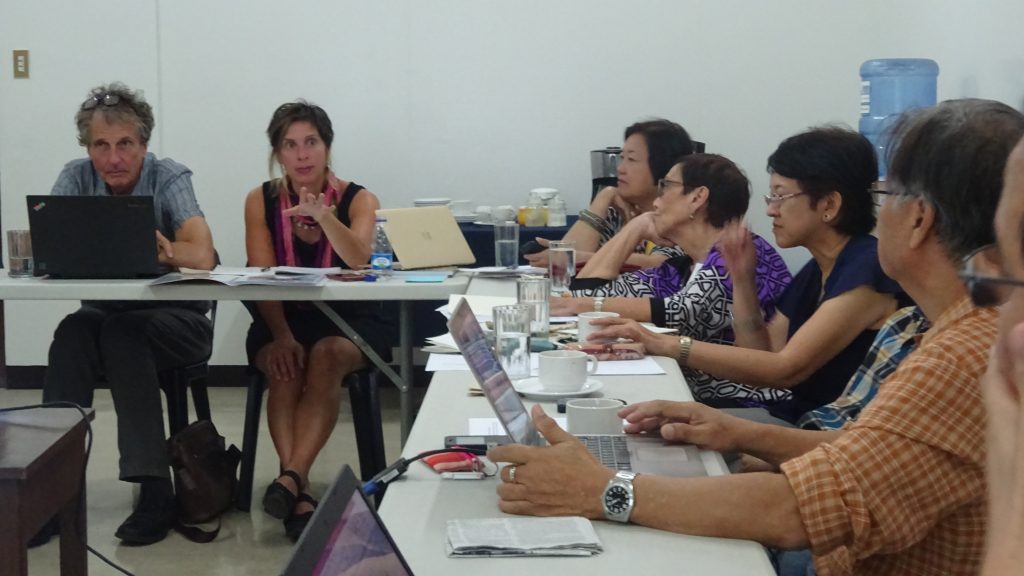
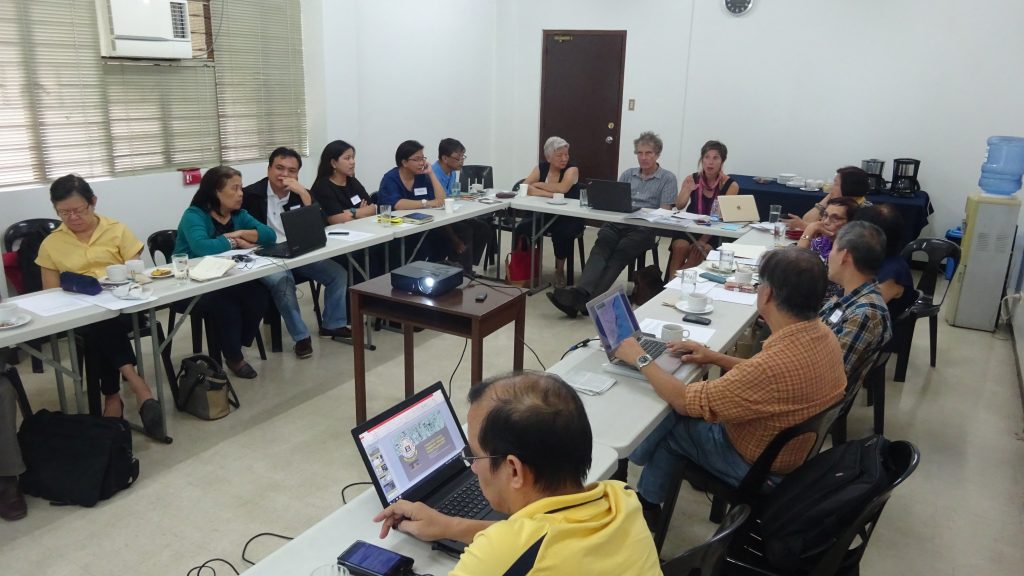
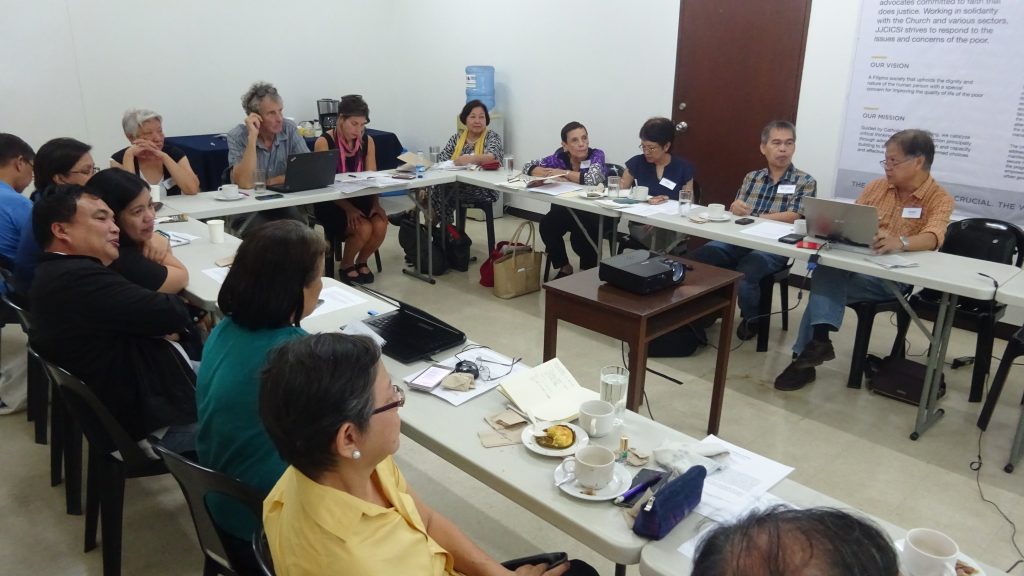
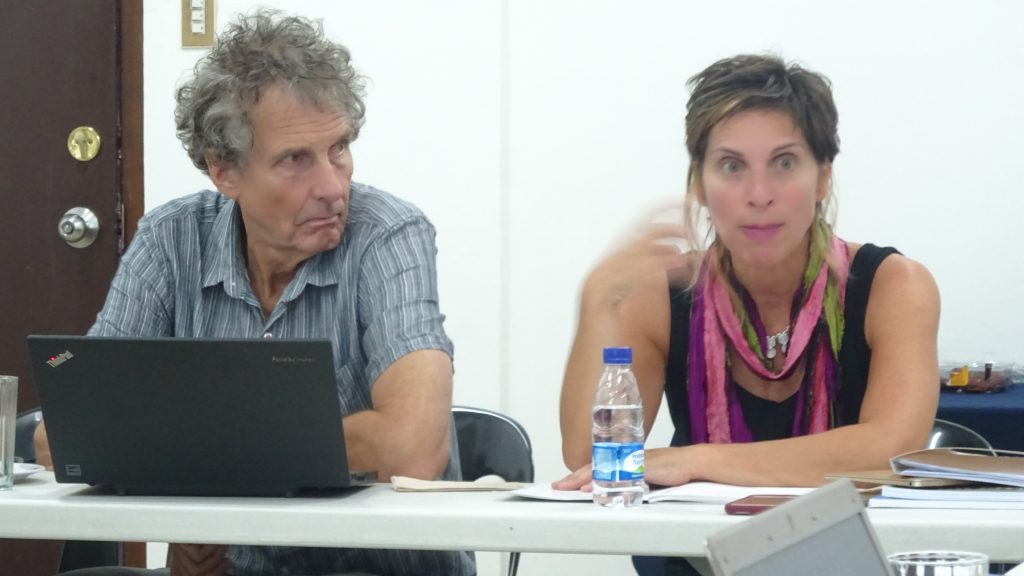
Participating organizations:
From Metro Manila/Luzon
- Community Organizers Multiversity (COM)
- Foundation for Development Alternatives (FDA)
- Foundation for the Development of the Urban Poor (FDUP)
- John J. Carroll Institute on Church and Social Issues (JJCICSI)
- National Network of CMP Originators and Social Development Organizations for Low-income Housing (CMP Congress)
- Partnership of Philippine Support Service Agencies (PHILSSA)
- Philippine-MISEREOR Partnership, Inc. (PMPI)
- Technical Assistance Organization (TAO-Pilipinas)
- Urban Poor Associates (UPA)
From Visayas
- Pagtambayayong Foundation
- Social Action Center – Tagbilaran
- Urban Poor Associates (UPA) – Tacloban
From Mindanao
- Mindanao Land Foundation (MINLAND)
- Cagayan de Oro City Housing and Urban Development Department
